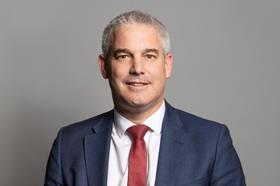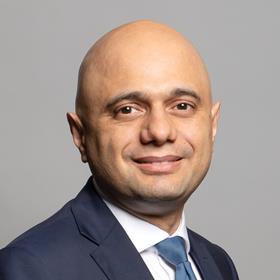As 2022 draws to a close, HSJ takes a look at its most read stories of the year.
‘Final straw’ as band 8 and 9 staff get ‘disgusting’ pay rise
The more recent slew of votes in favour of strike action has shown many NHS staff are unhappy with this year’s pay awards. However, back in July, immediately after the raises were announced, it was band 8 and 9 staff – some of who were set to have their pay go up by just 1.3 per cent – who were voicing their discontent. Jon Restell, chief executive of Managers in Partnership, warned the real terms pay cut could be the “final straw”.
The NHS is not living with covid, it’s dying from it
In July, HSJ editor Alastair McLellan and British Medical Journal editor Kamran Abbasi penned a joint editorial to warn of the pressures the health service was still facing due to coronavirus. They pointed out the aspiration that 2022 would be the year the NHS picked up the pace on recovering from the pandemic was underpinned by an assumption having beds filled with covid patients would be a distant memory. However, by summer, the country had faced two further notable waves of covid since the first omicron peak at the start of the year.

Steve Barclay is NHS leadership’s worst ‘nightmare’
Following Steve Barclay’s (first) appointment as health and social care secretary this summer, Mr McLellan wrote a comment piece outlining senior NHS leaders’ views of the politician: “A real nightmare, vindictive, arrogant, a bully, hostile to the NHS and all its works, a micro-manager of the wrong things, views NHS management as bloated and profligate.”
HSJ100: The most influential people in health

In June, HSJ published its annual ranking of the 100 people the publication felt would exercise the most power and/or have the most influence over health policy over the next year. As a sign of how quickly things can change, top of the list was now-former health secretary Sajid Javid. Second-placed NHS England chief executive Amanda Pritchard is still in post.
6,000-plus jobs to be cut at ‘new NHS England’
In July, it was announced 30-40 per cent of posts across NHSE, Health Education England and NHS Digital – which are merging to become one organisation – would be cut over the course of the next year. As there were around 20,000 roles across the organisations when the announcement was made, this would amount to between 6,000 and 8,000 positions.
Band 8 staff face cut in take-home pay
Issues with the summer’s pay awards rumbled through to September, when NHSE revealed the salary increases for some band 8a staff would actually lead to a decrease in their take-home pay. This was because they were being pushed into higher pension contribution tiers, but their back pay would not be enough to cover the arrears created by this change.

In addition to the top 100 list, HSJ also produced a list of wildcards for its HSJ100 – 20 people, groups and organisations who, while lacking the formal powers to direct policy, had ideas which could (and should) influence it over the coming year. Among them were the campaigners in Essex and Nottingham (in relation to the local scandals in mental health and maternity respectively), journalist and anti-poverty campaigner Jack Monroe, and Derbyshire Healthcare Foundation Trust chief executive Ifti Majid.
Pension contributions overhaul from October will avoid pay cut
In September, it was announced the contribution tiers for the NHS pension scheme were being amended, so they would move in line with annual pay awards. Although the changes were in the pipeline long before this year’s problems in band 8a came to light (see story above), the move should prevent similar situations in the future.
Exclusive: ‘Uncomfortable’ A&E model could be rolled out nationally
In October, HSJ revealed the so-called North Bristol model – where patients in the accident and emergency department requiring admission to a bed are moved to wards at regular intervals, regardless of whether there is a bed available – was under review at NHSE for a wider rollout. However, there are safety fears surrounding the model, with the Nuffield Trust think tank describing evidence for the model as “poor”.
‘We have done our own risk assessments’: the NHS staff defying the vaccine mandate
Back in January, NHS staff who were unvaccinated for covid were facing the prospect of losing their job. HSJ’s Nick Kituno spoke to staff from Queen’s Hospital in Romford, east London, who were protesting the mandate to seek their views. The protestors told him they were disappointed by the “blanket” treatment of healthcare decisions and “brute force” approach the government had taken. The requirement for NHS staff to have the covid vaccine was dropped later that month.


























No comments yet